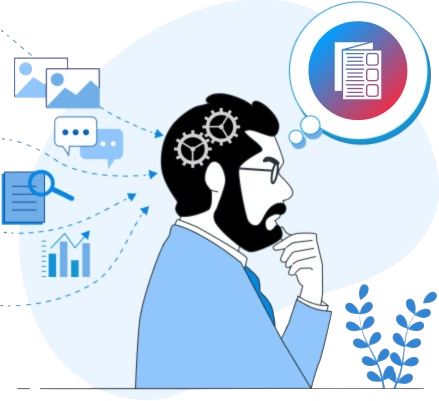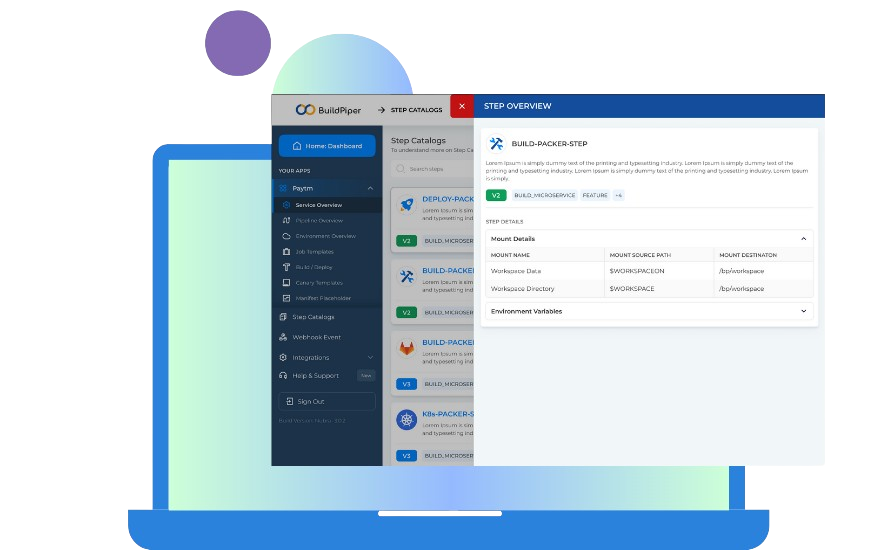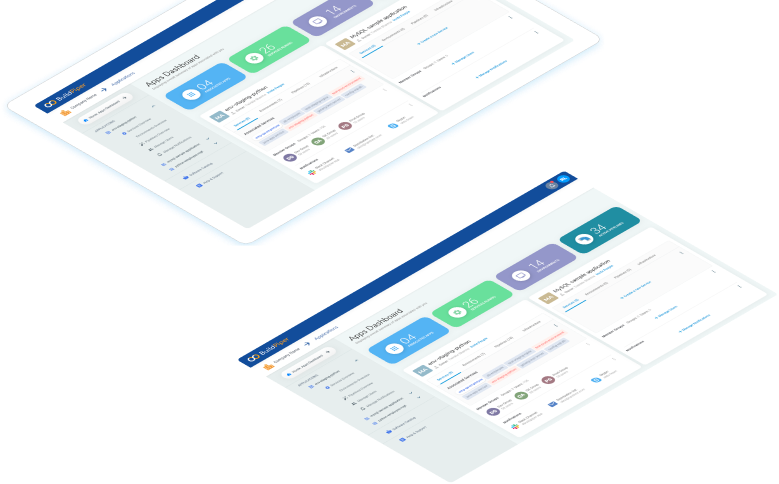A template-based approach
Seamless setup of multi-region production infrastructure with Step Catalog
A 10x faster approach for setting up your complex infrastructure.

Scroll to see, how we did it for one of our Global clients

Step Catalog is a powerful feature that allows teams to customize product behaviour and provides a structured approach to development. It is a collection of pre-configured actions or tasks that can be leveraged within a job template for configuring and executing jobs. These steps represent common processes that are frequently used across various projects or workflows. Teams can customize and extend existing steps or create new ones to meet their specific requirements.
A few of the many benefits that a template-based approach can bring.
Common onboarding tasks like setting up configurations, provisioning resources, integrating with monitoring and alerting systems etc are encapsulated as templates.
Easily make adjustments to your workflow by addition or rerrangement of any steps as per the requirement.
Eliminates unnecessary man-hours by automating repetitive tasks. Team members can focus their time and energy on high-priority activities.
Step Catalog is a simple template-based solution for organizations where repeatable tasks are taking a huge bandwidth of developers, manual errors are on the rise while setting up infrastructure/configuration and a lack of standardization is often leading to a chaotic scenario. By leveraging step catalogs the team will be able to achieve a 10x improvement in velocity and efficiency in daily engineering workflows. Step Catalog helps standardize the development process, enabling teams to define steps within a job. With a catalog of predefined steps, developers don't need to recreate tasks from scratch. They can simply select and reuse existing steps, saving time and effort. This approach is an optimal solution for boosting developer efficiency.


BuildPiper provides ready-to-use solutions through its Job Template and Step Catalog framework. Job Templates manage Jobs, each made up of modular Steps that can run in docker containers or VMs. Clone code, send slack message, pre-hook, JIRA integration are a few examples of steps that the product offers. This flexibility allows teams to customize Jobs based on microservices, languages, or other criteria, enabling tailored execution for specific groups of microservices.
